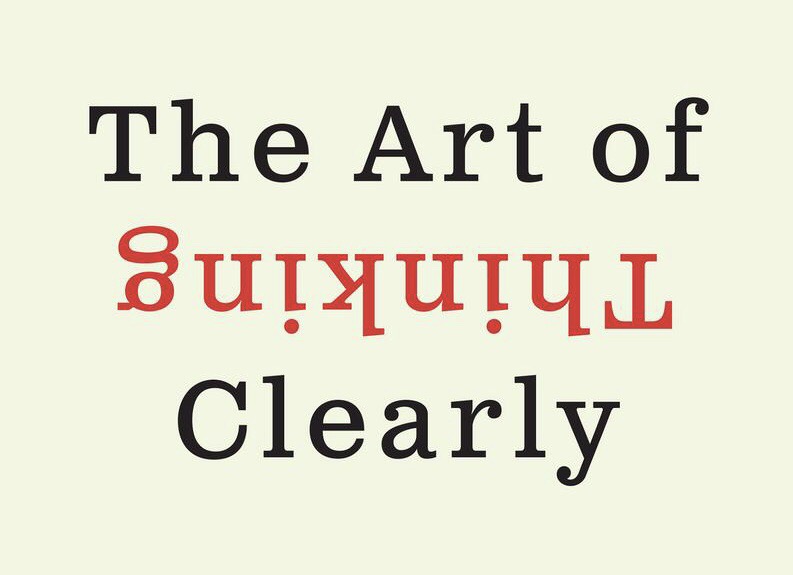I’m working my way through Rolf Dobelli’s The Art of Thinking Clearly by reading a few sections each morning. Here are my notes on the first 11 sections (Confirmation Bias had two sections, which I’ve only noted as one below):
- Survivorship bias: You overestimate your probability of success because you only see success stories. You find common threads in success stories and think they are the answer. Both ignore the failures because those stories aren’t told. When you are a survivor you think, “I did it! Everyone else can!” Look for counter examples and failures to overcome it.
- Swimmer’s body illusion: Swimmers usually choose swimming because they have good physiques. Swimming doesn’t necessarily cause good physiques. Harvard has a rigorous vetting process and skilled, driven people tend to get in. They’d likely be successful without Harvard. This may actually be a subset of the survivorship bias. (You don’t see ugly models selling makeup or fat swimmers because they don’t tend to last long in the business. Dumb people don’t make it though Harvard’s screening, so won’t bring down their salary numbers after 4 years.)
- Clustering illusion: Our brains are pattern and meaning recognizing machines. First regard patterns as pure chance. If there seems to be more, test it statistically.
- Social Proof: We are hardwired to copy the reactions of others. In the past it was beneficial for survival. Remember to look for links. Popular does not equal best on objective measures. “If 50M people say something foolish, it is still foolish.”
- Sunk Cost Fallacy: Investments of time or money to date don’t matter. Only future benefits or costs count.
- Reciprocity: The allure of both positive and negative reciprocity is so strong that it is best to avoid saying yes in the first place if it is something you don’t want.
- Confirmation bias: The tendency to interpret new information so it becomes compatible with your existing beliefs. We filter out disconfirming evidence. Look for disconfirming evidence and give it serious consideration. “Murder your darlings.”
- Authority bias: When making decisions, think about which authority figures are influencing your reasoning. Challenge them.
- Contrast Effect: Things seem cheaper, prettier, healthier, better, etc in contrast to something else. This is how magicians and con men remove your watch: Press hard in one area so you don’t feel the lighter touch of removing your watch. This is also why it is easy to ignore inflation. Compare things in individual cost/benefit calculations, not in contrast to an “original price” or what they are framed against.
- Availability bias: We create a picture of the world using the examples that most easily come to mind. This creates an incorrect risk map in our heads. We attach too much likelihood to flashy outcomes. We think dramatically, not quantitatively. We tend to focus on what is in front of us, whether or not it is the most important question. We can overcome it by getting others’ input with different experiences and expertise.

